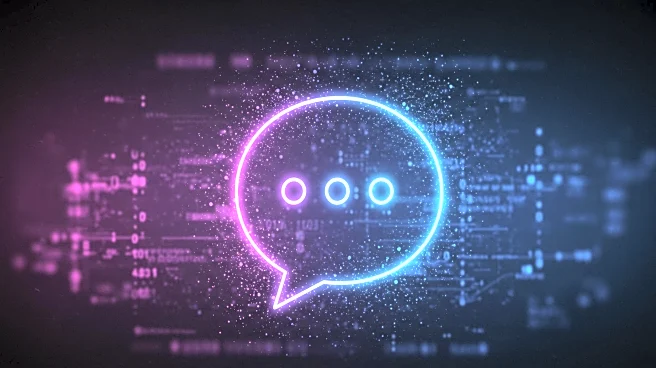What's Happening?
OpenAI's recent update to its ChatGPT model, transitioning to GPT-5, has led to significant emotional responses from users who had formed deep connections with the AI. The update, which altered the AI's personality, was met with frustration and grief by users who relied on it for companionship, emotional support, and even therapy. OpenAI acknowledged the oversight in underestimating the importance of certain features to its users and has since restored access to older models for subscribers. The update has brought attention to AI companion communities, highlighting the emotional bonds users have developed with AI models.
Why It's Important?
The emotional attachment users have to AI models like ChatGPT underscores the evolving role of AI in personal and emotional spheres. This development raises questions about the ethical responsibilities of AI developers in maintaining continuity and consistency for users who depend on these technologies for emotional support. The situation also highlights the potential public health implications of AI companionship, as well as the power companies like OpenAI hold in influencing users' mental health. The incident serves as a reminder of the need for careful consideration of user experience in AI development, particularly for those using AI for emotional and psychological support.
What's Next?
OpenAI's response to user feedback suggests a potential shift in how AI companies might handle future updates, with a focus on maintaining user trust and emotional stability. The company may need to incorporate insights from behaviorists and experts in AI companionship to ensure safe and supportive environments for users. As AI continues to integrate into personal lives, ongoing dialogue about the ethical and psychological impacts of AI relationships will be crucial. Users and developers alike will need to navigate the balance between technological advancement and the preservation of human connections.
Beyond the Headlines
The situation with ChatGPT highlights broader cultural and ethical questions about the role of AI in human relationships. As AI becomes more integrated into daily life, the distinction between human and machine interactions blurs, prompting discussions about the nature of companionship and emotional support. This development may lead to a reevaluation of how society views AI's place in personal and emotional contexts, potentially influencing future AI design and regulation.










